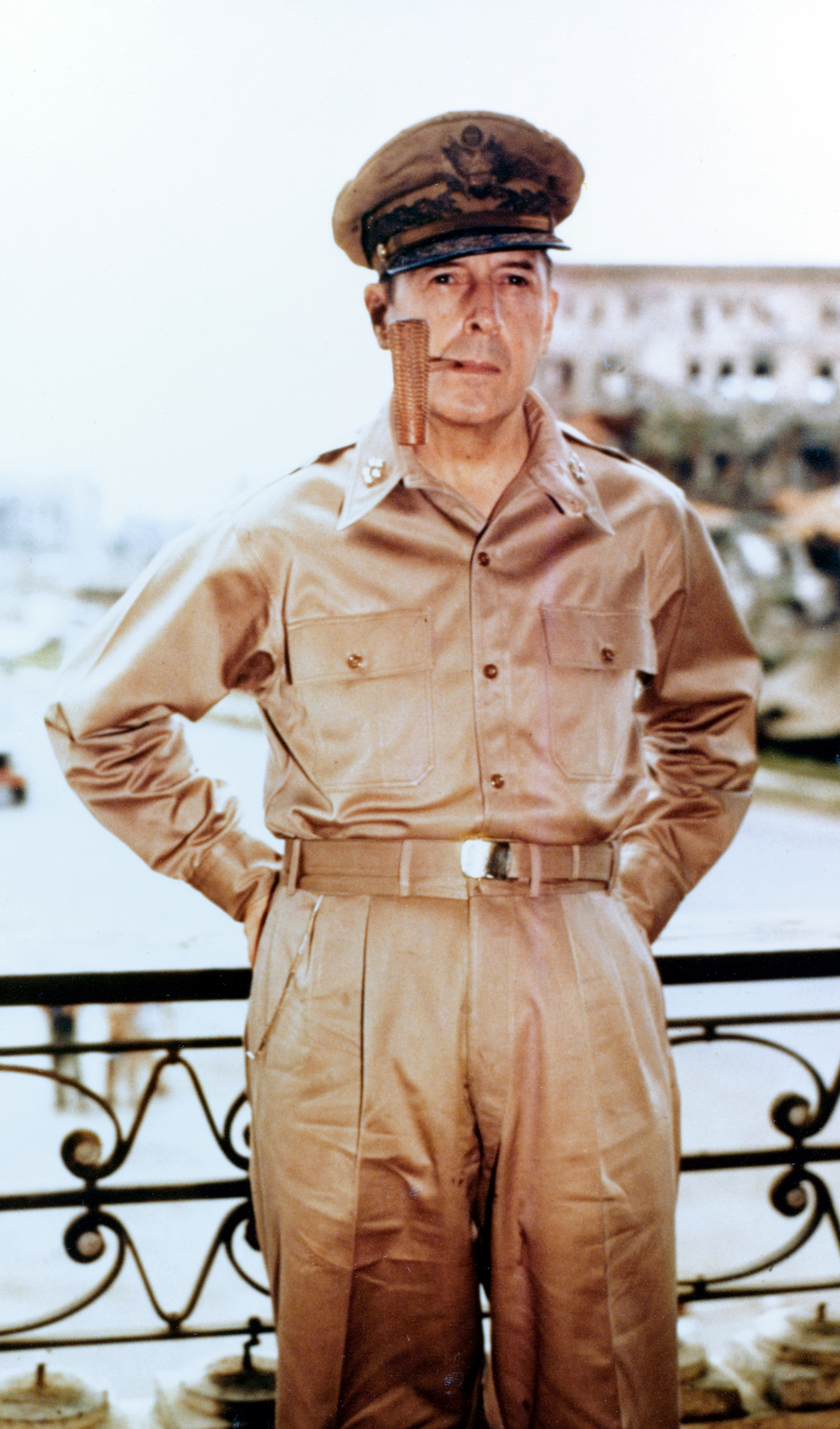On his way from Alice Springs to Adelaide by train, he issues this statement to the press:
The President of the United States ordered me to break through the Japanese lines and proceed from Corregidor to Australia for the purpose, as I understand it, of organizing the American offensive against Japan, a primary objective of which is the relief of the Philippines. I came through and I shall return.
In April he accepts the Medal of Honor for his defense of the Philippines (such are the ironies of public life) and becomes Supreme Commander of the Allied Forces in the Southwestern Pacific.
The men left behind become Japanese prisoners of war. Those who survive the Bataan Death March and the harsh conditions and cruel treatment at Camp O'Donnell are not freed until January 30, 1945.
The men left behind become Japanese prisoners of war. Those who survive the Bataan Death March and the harsh conditions and cruel treatment at Camp O'Donnell are not freed until January 30, 1945.
General MacArthur does return on October 20, 1944, at Palo Beach, Leyte Island, to begin the first phase of the campaign for the Liberation of the Philippines. The campaign ends successfully on September 2, 1945.
I am going to propose that, instead of the shall in this now-famous catchphrase, General MacArthur meant to use will.
General MacArthur did not remember this point of grammar the way I do, although I dare say his old-lady teacher also wore a self-belted shirtwaist dress and Marcelled her hair. According to the rule, shall signifies a statement of future fact and will signifies a statement of future intent. The good general chose the word that sounded more emphatic, instead of the one that was more emphatic.
Like my teacher, this usage has become all but extinct. Maybe you remember it, if you're as old as I am; maybe you've never heard of it. If you search "shall and will" on the web, you will still find some vestiges of it.

General of the Army Douglas MacArthur smoking his corncob pipe, probably at Manila, Philippine Islands, 2 August 1945.
Naval Historical Center. Photo #: USA C-2413 (Color), photograph from the Army Signal Corps Collection in the U.S. National Archives. Photographer not credited.
1 comment:
Perhaps MacArthur wanted to imply inevitability rather than good intent. "The laundry will be done today." is not the same as, "I intend to do the laundry."
Glad to see you in the blogverse. Your style is so readable.
Post a Comment